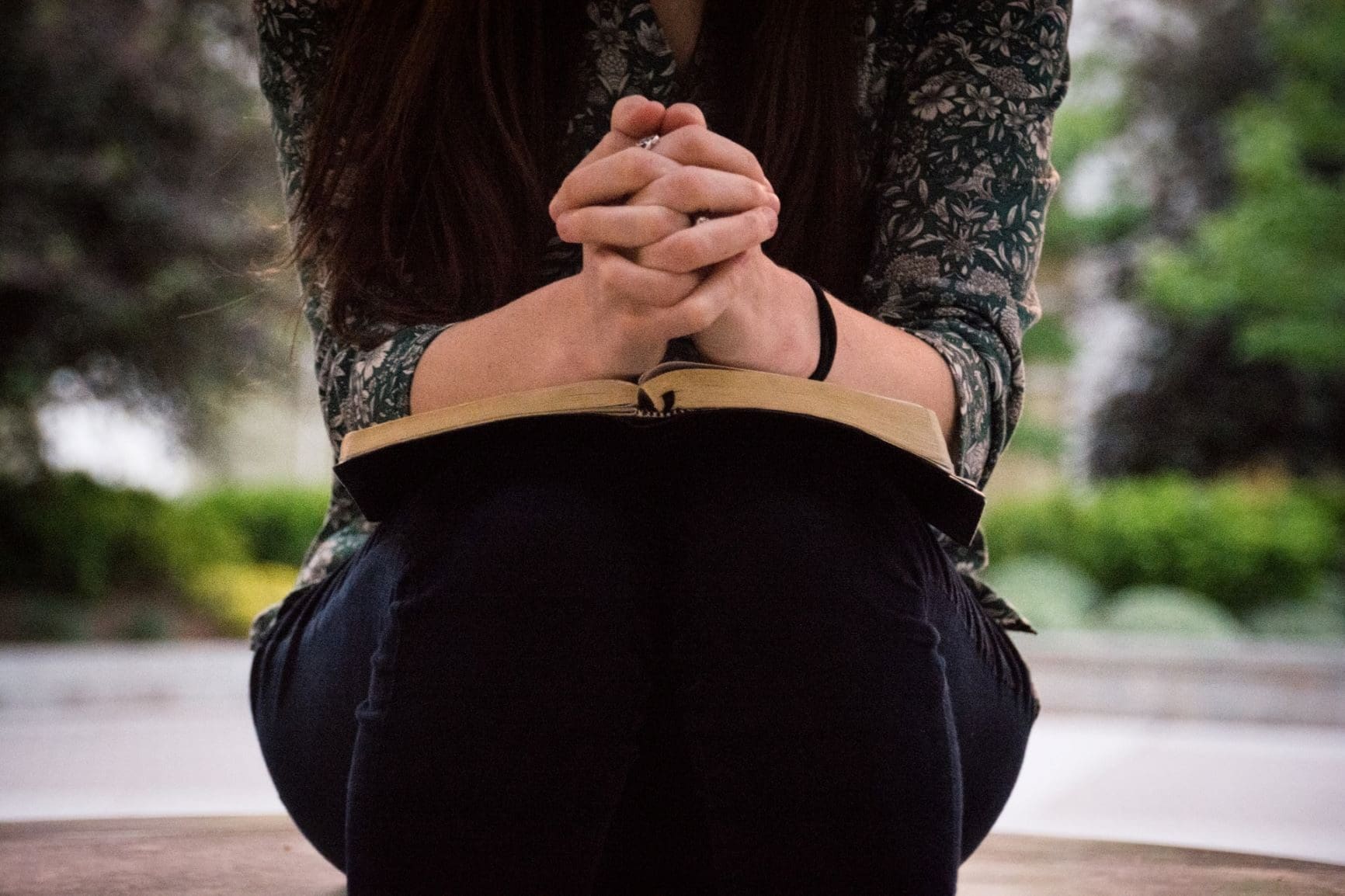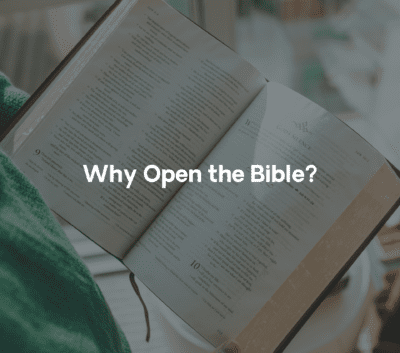Elijah was a man with a nature like ours, and he prayed fervently that it might not rain, and for three years and six months it did not rain on the earth. Then he prayed again, and heaven gave rain, and the earth bore its fruit (James 5:17-18).
We learn about Elijah’s prayer in two places in the Bible: 1 Kings 18 and James 5:17-18, where God gives us further light on the story. Putting these two scriptures together, I have made seven observations. All of them begin with the letter “P.” I’ve put these into a sentence that I hope might be useful to you: Position yourself in private to pray what God has promised with precision, passion and persistence.
Seven P’s of Effective Prayer
1. Private
Elijah went up to the top of Mount Carmel (1 Kings 18:42).
Think about what had happened: Elijah had called down fire from heaven. The people were shouting “The Lord, He is God.” Elijah was the man of the moment. The crowd would have cheered him like a sports celebrity, if he had stayed with them. But Elijah pulls away from the crowd, and goes to the top of Mount Carmel to pray.
You find the same pattern in the ministry of Jesus. He has just performed a great miracle, healing the mother-in-law of Simon Peter. The whole town hears about it, and crowds gather. They brought all the sick and all the oppressed to Him. Mark says the whole city was at the door (Mark 1:33). Jesus healed many. But early the next morning, we read that Jesus departed and went to a lonely place where He prayed (1:35). Christ withdraws from the crowd and gives Himself to prayer. That is what Elijah did, too.
Praying with other people is important, but there is a kind of praying that you can only do on your own. Lovers like to be alone together, and God who is the great lover of your soul wants time alone with you. Jesus said, “When you pray, go into your room and shut the door and pray to your Father who is in secret” (Matt. 6:6). Do you do this?
A.W. Pink points out: “shutting the door” means more than being alone, “it also signifies the calming of our spirit, the quieting of our feverish flesh, the gathering of all our wandering thoughts, that we may be in a fit frame to draw near and address the Holy One.” [1]
This is important for all Christians and especially for Christian leaders. The public work of proclamation must be followed by the private work of intercession.
2. Position
[Elijah] bowed himself down to the earth and put his face between his knees (1 Kings 18:42).
God always speaks with intent and with precision, and the Holy Spirit has preserved this vivid description of Elijah’s posture when he prayed. Picture him kneeling, with his head all the way down to the ground. The mighty prophet looks like a little ball before the Lord.
Again, this makes me think about our Lord Jesus. We are told that in the Garden of Gethsemane, “He fell on his face and prayed” (Matt. 26:39). Most likely, He draped Himself over a large stone.
Different postures are appropriate for different situations in prayer. You can pray while you walk, and you can pray while you are driving, though it is good to keep your eyes open if you do! The Bible does not mandate a position for prayer, but it often records the posture people adopted in prayer, which must mean that this has some significance.
Elijah’s body language is significant: It speaks of his total dependence on God and his intense seriousness before God. People had been dying in the drought. It had gone on for three and a half years. This prayer matters. Elijah kneels on the ground and puts his face between his knees.
In the church I served in London, it was the pattern for our leaders to gather on Sunday mornings, and for the best part of an hour we would kneel and pray for God’s blessing on the ministry and on the congregation. It’s become a pattern for our church board here to end its meetings with all the board members on their knees, seeking the blessing of God.
I find that if I am to engage in prayer seriously, I need to make some time to get down on my knees and pour out my heart to God. It’s like saying “Lord, here I am again. I’m serious. I feel the weight of who you are. I feel the weight of what I bring to you.”
3. Promised
The word of the Lord came to Elijah, in the third year, saying… “I will send rain upon the earth” (1 Kings 18:1).
When Elijah prayed for rain, he prayed with confidence because he was asking for something that God had already promised. Faith is a believing response to the word of God. The prayer that flows from faith has the same character.
God has given you an open invitation to ask anything of Him. But the freedom to ask anything does not come with a commitment from God to give all that we ask. Prayer is never a means of manipulating God into something He did not plan to do. That would be the worst kind of idolatry.
It is a great mistake to imagine that if we can muster enough faith, we can somehow strong-arm God into getting what we ask. Many of us will know someone who was told at one time that, if only they had more faith, they would be healed. To say that is cruelty of the worst sort, adding insult to injury for a person who suffers.
Elijah prayed for what God had said He would do, so cultivate the practice of praying what God has promised. Here’s how you can do that: Use the Bible as fuel for your prayers. Pray with an open Bible, and as you read the Bible, turn what God says to you back to Him in prayer.
Recently, I was reading Daniel 12:3: “Those who are wise shall shine like the brightness of the sky above; and those who turn many to righteousness, like the stars forever and ever.” God wants His people to be wise, and turning a person to righteousness is a work with never-ending value. There’s fuel in that to pray for people in different situations today. Tomorrow there will be something fresh in the scripture that will provide fuel for your prayers. Engines run better when there is fuel in the tank.
Put some fuel in the tank before you start the engine of prayer.
4. Pray
Then he prayed again, and the heavens gave rain (James 5:18).
Why should we ask God for something He has already said He will do? If God has already promised, why pray? The answer is that God decides not only what will happen, but also how it will come to pass. God determines ends, but He also determines means. The what is His promise, the how is our prayer. So, God’s promises tell us what we should ask for.
A.W. Pink says that God’s promises are “the mold in which our petitions should be cast.” [2]
What God has willed in His promise will be done through your prayer. That gives huge significance to our lives and our ministries, and especially to our prayers. We are God’s fellow-workers (2 Cor. 6:1).
5. Precision
He prayed fervently that it might not rain… He prayed again, and heavens gave rain (James 5:17-18).
Elijah was very clear in what he asked for. Jesus asked a man, “What do you want me to do for you?” (Mk. 10:51). What would you say if Jesus were to ask you that question? You might have a request for someone you love, but if He pressed you and said, “What do you want me to do for you,” what would you say? That’s a great question to talk about in your family, your small group, or with your friends. And it is much more difficult to answer well than you might first imagine.
Elijah knew what he wanted, and he was looking for the answer. Some folks find journaling helpful in being clear about what they ask, and in looking for the answer. However you do this, it’s important to be clear in your asking. Almighty God has invited you to ask, so ask!
6. Passion
Elijah prayed fervently (James 5:17).
Literally, that reads: “In prayer he prayed.” This is a Hebrew way of speaking. When Jesus told the disciples that He “eagerly desired” to eat the Passover with them, the words He used were literally, “With desire, I have desired, to eat the Passover with you” (Luke 22:15). Here you have the same form. There was life and energy in Elijah’s praying.
It is easy, even for the best Christians, to fall into a spiritual drowsiness in which we pray with little faith, little energy, and little desire. There is no power in that kind of prayer. Elijah’s prayer was different. He prayed fervently. What he asked for mattered to him. He brought it before God with life and vigor—in prayer he prayed!
7. Persistence
And at the seventh time, he said, “Behold, a little cloud the size of a man’s hand is rising from the sea” (1 Kings 18:44).
Elijah prayed for what God had promised. He prayed with precision and with passion, but the answer did not come straight away. He sent his servant to look toward the sea for a sign of rain. The servant came back saying, “There is nothing” (18:43). So, Elijah says, “Go again.”
Get the picture: The prophet is praying. The servant is running—still nothing. Elijah says to the servant, “Go again!” More praying, more watching—still nothing.
When you get to the fifth or sixth time, you get tired of praying and you get tired of looking. You may have prayed the sixth time or the sixtieth time or the six hundredth time. Jesus told his disciples that they should always pray and not give up (Luke 18:1).
Elijah did not give up. When his servant looked the seventh time, he saw a little cloud and “in a little while, the heavens grew black with clouds and wind, and there was a great rain” (1 Kings 18:45).
Position yourself in private to pray what God has promised with precision, passion, and persistence. This kind of praying avails much! Lives were changed through Elijah’s prayer. Families will be changed, the church will be changed, and you will be changed through your praying, too.
Andrew Bonar wrote this encouragement to a friend:
O brother, pray. In spite of Satan, pray;
Spend hours in prayer. Rather neglect friends than not pray.
Rather fast, and lose breakfast, dinner, tea and supper-and sleep, too-than not pray.
And we must not talk about prayer-we must pray in earnest. [3]
_____






